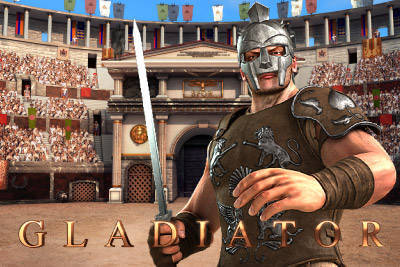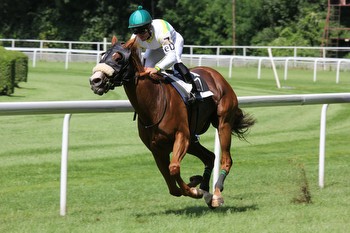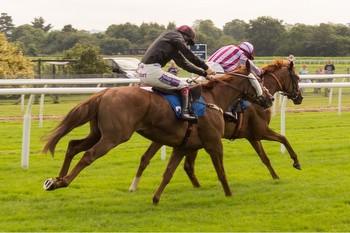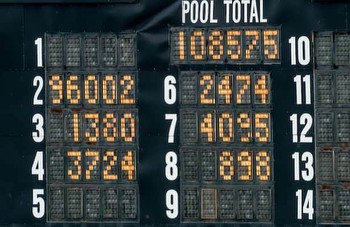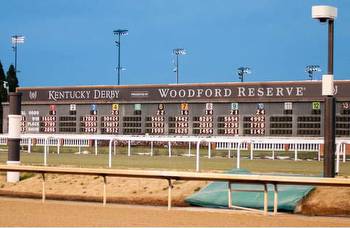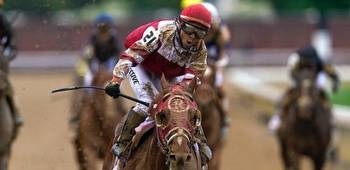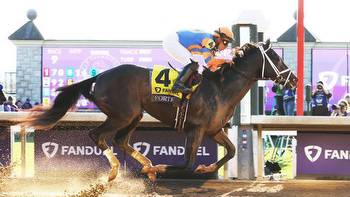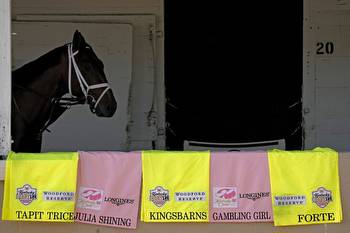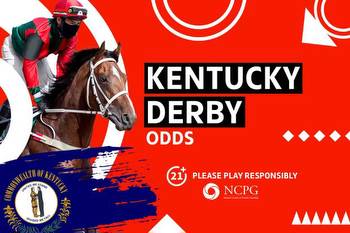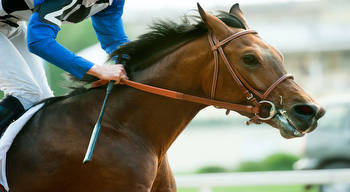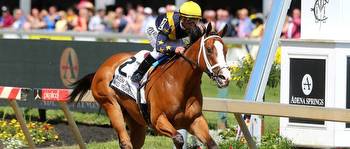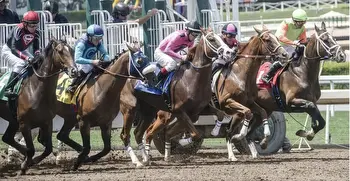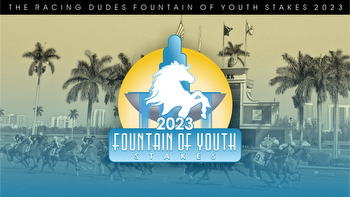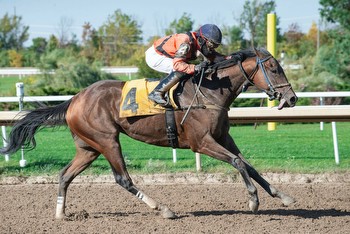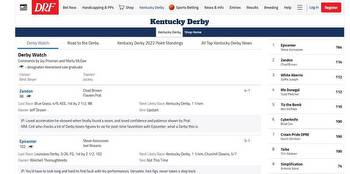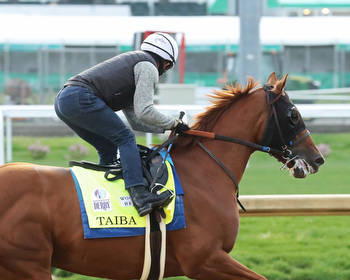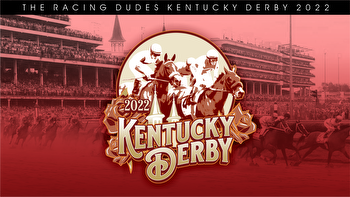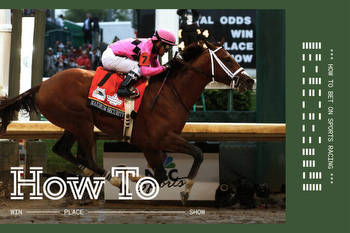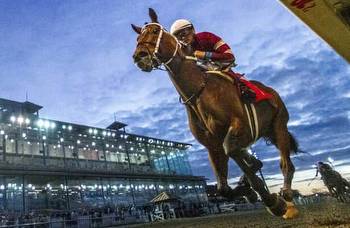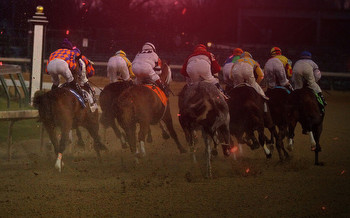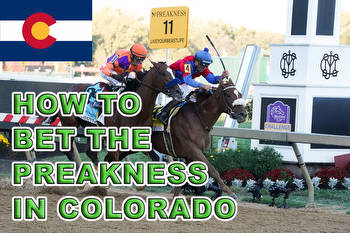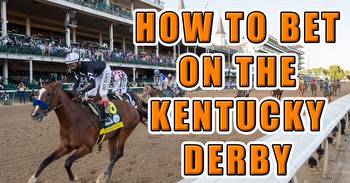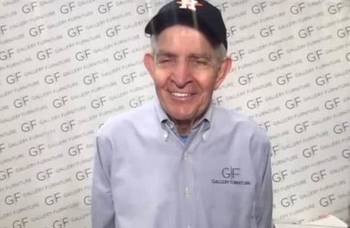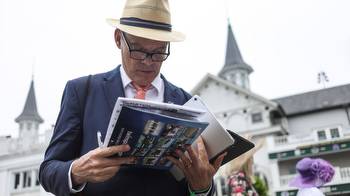Kentucky Derby 2023 Basic Bets And Tips For Beginners
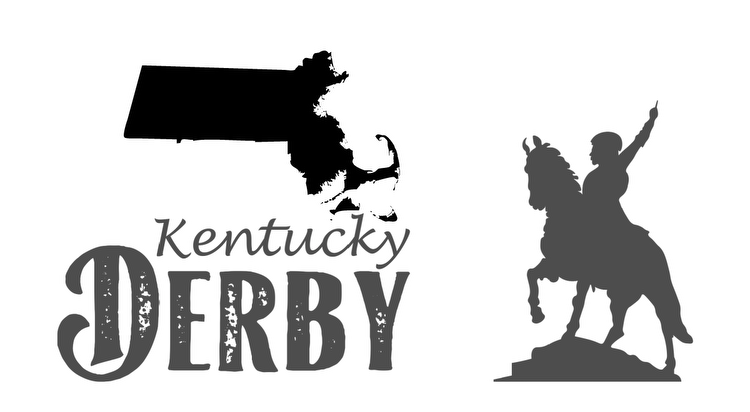
The 2023 Kentucky Derby is right around the corner. That means Massachusetts bettors are preparing for the action.
Even with legal US sportsbooks live in Massachusetts, betting on the Kentucky Derby is still a major event for horse betting in Massachusetts.
If you have not bet a horse race in a while, our PlayMA writer and Massachusetts native, Jack Flaherty, has you covered.
Kentucky Derby 2023 race preview
This year, the Kentucky Derby takes place on May 6 at Churchill Downs in Louisville, Kentucky. Coverage begins at 2:30 p.m. ET on NBC, while the race itself starts at 7:30 p.m.
The Derby figures to draw plenty of wagers from horse racing fans in Massachusetts. Several betting options are available.
TVG or FanDuel Racing, or they can bet in person at one of three horse racing simulcast facilities: Suffolk Downs, Raynham Park or Plainridge Park Casino.
The race is expected to have its full complement of 20 entries, barring some late scratch. As many as 160,000 horse racing fans are expected to be in attendance.
The Kentucky Derby is the one race you have to earn your place at the post. Horses must qualify based on a points system collected through numerous Derby Prep races. It’s fair.
The Derby distance is 10 furlongs or a mile and a quarter. A distance no 3-year-old has yet run. If the Prep season means anything, we have the cream of the crop entered.
Kentucky Derby basic bets
Straight bets include the win, place and show wagers. Exotic bets include any involving two or more finishing places. Here’s a rundown of horse race betting options.
Win Bet: Pays first place only. The dominant wager.
Place Bet: Pays first or second. Another bet I like, not to be used on favorites.
Show Bet: Third place or better. If you like a pony, bet him first or second. Show puts you in the pool with the unwashed and innocent. Creatures muck around in the Show pool.
Exacta Bet: Pick the top two horses in exact order.
Exacta Box: Pick top two finishers in any order.
Trifectas and Tri Boxes: Same thing as Exacta but the top three horses.
Superfectas: The top four finishers. With 20 horses, go ahead and have fun.
Daily Double: Pick the winning horse in two consecutive races.
Pick 5, Pick 6: Select the winning horse in five or six consecutive races.
My basic betting philosophy: Focus on trainers
To know me better for my Derby selection next week, let me state: I value trainers more than jockeys, but others feel differently.
At this top level, to me, the jocks are all top rate and know how to use the stick. It’s only when there is an inexperienced young jockey will I pay attention, knowing that the top riders can be nasty and will gang up on rookies just for fun.
I consider Brad Cox to be the top trainer in the business and have enjoyed a decent profitable prep-season with him so far. I have not had a favorite trainer in a long time – not since Saint Nicholas P. Zito quietly retired. So be informed, I lean towards Brad Cox horses.
Where I don’t lean is towards convicted cheaters. In this race, we have two. Steve Asmussen and Bob Baffert. Both have been convicted for using drugs to make their horses run faster. It is a pernicious, oppressive, and inexcusable problem for horse racing that, for me, carries no statute of limitations. I will never pardon them so keep this in mind when you peruse my picks next week.
How does parimutuel betting work for the Kentucky Derby?
Until around 1875, all wagering at horse tracks was “fixed betting.” You wandered around the track, talked to betting agents, some with posted odds, many without, and tried to obtain the best odds for your wager. It was a process and even then, you knew the seller was taking advantage of you by offering crummy odds.
Then came along a smart American who invented a new betting system, the “pari-mutuel” or “bet together” in French.
All wagers are sent and funneled into their corresponding pools, a mutual or group pool of wagers. Odds are then based on the horse and the money that is wagered on each of them.
The seller, or today the host track, is only the caretaker of the betting pools. The track doesn’t care who wins the races. Their interest is only the percentage it earns from the pools, then divides the rest among the winners.
A word of caution to new horse bettors
Some valuable betting information is not known by the great great majority of people at a race track.
Similar to legal sports betting, the house gets a cut of the betting pool. It’s known as vigorish or “vig.” As an example, below is the percentage taken by New York’s Aqueduct racetrack. And remember, the host has to split this with its affiliates nationally.
Win-Place-Show: 16%
Exacta and Daily Double: 18%
Trifecta and Superfecta: 24%
Pick 5 and Pick 6: 24%
As one can discern, this is another reason why I prefer straight bets and exactas. With handicap skill and a lot of dumb money around, a 16% vig gives one a fighting chance to earn money. The 24% take in the longer-shot exotic bets, not so much.
My Massachusetts horse racing roots
My grandfather, Papa, from Somerville near Boston, attended the race track nearly every day during the live meets. He worked a very early shift as butcher at the local supermarket which allowed him free time in the afternoon. He was a man of determination which encouraged him to take the public bus over to Suffolk Downs and determine which horses might win that afternoon.
No one ever knew if he won or lost. It was not a forbidden subject, just a dead-end subject.
When my family visited during racing season on weekends, we knew not to expect Papa until 30 or so minutes after the last race. Nana, my grandmother understood; perhaps I did as well. Near the age of ten, I asked Papa if I could go to the track with him. He looked at me as if I had grown two heads and growled that “children don’t belong there.”
Suffolk Downs, in those bygone days, was mostly attended by serious men. Great Depression men, men who threw around quarters like man-hole covers and hardly ever smiled and could even appear dangerous. There were no birthday trifectas, no anniversary exactas, no whimsical fooling around. These guys bet as if their Sunday Church offering weighed in the balance and most would never spend a dime for a silly track program.
They used memory and discussions with their brethren. Then made the cold calculations about the competition, the field, the track conditions. And when they won, they retained, for at least a little while, the warm satisfaction that on this day, this time, they had beaten the track.
If you or a loved one is experiencing problems with gambling, call 1-800-327-5050 or visit www.mahelpline.org/problemgambling to speak with a trained specialist for free, 24/7
